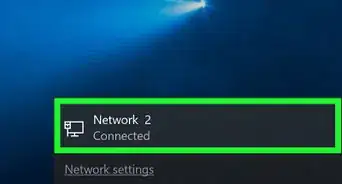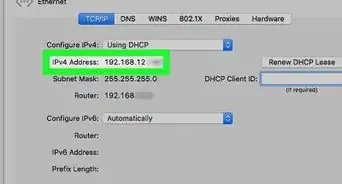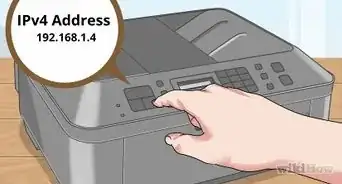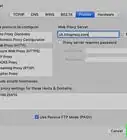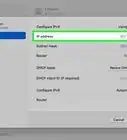This article was co-authored by wikiHow staff writer, Jack Lloyd. Jack Lloyd is a Technology Writer and Editor for wikiHow. He has over two years of experience writing and editing technology-related articles. He is technology enthusiast and an English teacher.
The wikiHow Tech Team also followed the article's instructions and verified that they work.
This article has been viewed 1,700,839 times.
Learn more...
This wikiHow teaches you how to prevent websites, your Internet Service Provider (ISP), and network intruders from seeing your computer or mobile IP address. You can use an online proxy search to use a fake address temporarily, or you can sign up for a Virtual Private Network (VPN) subscription—which is essentially a more permanent proxy—to use a fake IP address on your computer or smartphone by default.
Steps
Using a Proxy Website
-
1Understand how proxies work. Proxy websites take your IP address and hide it behind a different address—often one from a different country—in order to fool websites and ISPs into thinking that your computer's IP address isn't being used. This is handy if you want to try watching a movie that is blocked in your region, for example, or if you want to check your bank statements while using public Wi-Fi.
- It's important to block your IP address whenever using free, public Wi-Fi (e.g., a coffee shop network).
- Since proxies often redirect your address through a server in a different country, your browsing will be noticeably slower than usual.
-
2Open the Hide Me site. Go to https://hide.me/en/proxy in your browser. Hide Me is a simple, proxy-based search engine from which you can browse anonymously.
- Keep in mind that your IP address will only be hidden so long as you use Hide Me in the current browser. Your browsing on other pages or in other browsers will not be hidden.
Advertisement -
3Click the address field. It's the white "Enter web address" text field in the middle of the Hide Me page.
-
4Enter a search term. Type in a website address (e.g., "facebook.com" or "google.com"). You cannot search for individual terms in Hide Me, so you'll need to enter the address of a search engine like Google or Bing if you want to browse.
-
5Select a server location. Click the "Proxy location" drop-down box, then click a server location (e.g., Germany) in the resulting drop-down menu.
-
6Click Visit anonymously. It's a yellow button near the bottom of the page. Doing so will go to your selected site, at which point you can browse like usual.
- Make sure that you stay on the Hide Me tab of your browser to continue hiding your IP address.
Using a VPN on Windows
-
1Subscribe to a VPN service. When you subscribe to a VPN service, you usually receive a username, a password, and a VPN server address. VPN subscriptions are not free, and are often billed monthly.
- ExpressVPN is generally considered one of the best choices for Windows, Mac, iPhone, Android, and Linux.
- Downloading free VPN software is a different process, as doing so gives you a program that will block your IP address in all browsers but must be turned on and off.
-
2
-
3
-
4
-
5Click VPN. This option is on the left side of the window.
-
6Click Add a VPN connection. It's at the top of the window. A new window will open.
-
7Enter your VPN's information. Click the "VPN provider" drop-down box at the top of the page, click Windows (built-in), and then enter your VPN subscription's address in the "Server name or address" text field. You can also add a name for the VPN in the "Name" text field.
- If your VPN requires a username and/or password, enter these credentials in the "User name" and "Password" text fields.
- You can change the type of VPN authentication used by clicking the "Type of sign-in info" drop-down box and then selecting a different option in the resulting drop-down menu.
-
8Click Save. It's at the bottom of the menu.
-
9Connect to the VPN. Click the VPN's name near the top of the page, then click Connect below it. This will connect you to your VPN service, at which point all browsing regardless of browser or Internet connection will be hidden.
- You may need to enter a username and/or password before your VPN will connect.
Using a VPN on Mac
-
1Subscribe to a VPN service. When you subscribe to a VPN service, you usually receive a username, a password, and a VPN server address. VPN subscriptions are not free, and are often billed monthly.
- ExpressVPN is generally considered one of the best choices for Windows, Mac, iPhone, Android, and Linux.
- Downloading free VPN software is a different process, as doing so gives you a program that will block your IP address in all browsers but must be turned on and off.
-
2
-
3Click System Preferences…. It's near the top of the drop-down menu.
-
4Click Network. This globe-shaped icon is in the System Preferences window.
-
5Click +. It's in the lower-left side of the window. A new window will open.
-
6Select VPN settings. Click the "Interface" drop-down box, then click VPN in the resulting drop-down menu.
-
7Select a VPN type. Click the "VPN Type" drop-down box, then select a VPN type in the drop-down menu.
- Most common VPNs will use the L2TP option.
-
8Add a name. Type a name for your VPN into the "Service Name" box.
-
9Click Create. It's a blue button at the bottom of the window.
-
10Enter your VPN's server information. This will include the server address and the account name under which the VPN is registered.[1]
-
11Click Authentication Settings…. It's a grey button in the middle of the page. Doing so opens a new window.
-
12Enter your VPN's authentication information. Check a verification method under the "User Authentication" heading (e.g., Password) and enter the answer, then do the same for the "Machine Authentication" heading.
-
13Click OK. It's a blue button at the bottom of the window. This will save your settings and exit the Authentication Settings window.
-
14Click Connect. This option is in the middle of the page. Doing so will connect to your Mac's VPN, meaning that your IP address will be hidden for all browsing until the VPN disconnects or is turned off.
- You may have to enter a password or a confirmation code before your VPN will fully connect.
Using a VPN on iPhone
-
1Subscribe to a VPN service. When you subscribe to a VPN service, you usually receive a username, a password, and a VPN server address. VPN subscriptions are not free, and are often billed monthly.
- ExpressVPN is generally considered one of the best choices for Windows, Mac, iPhone, Android, and Linux.
- Downloading free VPN software is a different process, as doing so gives you a program that will block your IP address in all browsers but must be turned on and off.
-
2
-
3
-
4Scroll down and tap VPN. You'll find this near the bottom of the page.
-
5Tap Add VPN Configuration…. It's at the top of the screen.
-
6Select a VPN type. Tap the Type text field, then tap your VPN's connection type.
- If you don't see your VPN's connection type here, you can't use your VPN on your iPhone.
-
7Enter your VPN's information. Fill out any text fields that have "Required" written in them.
-
8Tap Done. It's in the top-right corner of the screen. Doing so takes you back to the VPN page, where your VPN should have a blue checkmark next to it.
-
9
-
10Enter your login information when prompted. Type in the password (or other authentication information) in the pop-up menu, then tap OK. This will connect your iPhone to your VPN, allowing you to browse without your IP address being seen.
Using a VPN on Android
-
1Subscribe to a VPN service. When you subscribe to a VPN service, you usually receive a username, a password, and a VPN server address. VPN subscriptions are not free and are often billed monthly.
- ExpressVPN is generally considered one of the best choices for Windows, Mac, iPhone, Android, and Linux.
- Downloading free VPN software is a different process, as doing so gives you a program that will block your IP address in all browsers but must be turned on and off.
-
2
-
3Tap VPN. You'll usually find it near the top of the Settings page, though you may have to scroll down to see this option.
- On some Androids, you may first have to tap More below the "Wireless & networks" section.
- On a Samsung Galaxy phone, first tap Connections, then More connection settings, then tap VPN.
-
4Tap + or ADD VPN. This option is in the top-right corner of the screen.
-
5Enter your VPN's information. In the labeled fields provided, enter your VPN's name, connection type, server address, username, and/or password.
- Depending on the type of connection that you select, you may have additional options here.
-
6Tap SAVE. It's in the top-right corner of the screen. This will save your VPN's settings and add the VPN connection to your Android.
-
7Select your VPN. Tap your VPN to open its page.
-
8Connect to the VPN. Enter any username, password, and/or other credentials as requested, then tap CONNECT. This will activate your VPN, hiding your IP address in the process.
Community Q&A
Did you know you can get answers researched by wikiHow Staff?
Unlock staff-researched answers by supporting wikiHow
-
QuestionHow can you change your IP address?
 wikiHow Staff EditorThis answer was written by one of our trained team of researchers who validated it for accuracy and comprehensiveness.
wikiHow Staff EditorThis answer was written by one of our trained team of researchers who validated it for accuracy and comprehensiveness.
Staff Answer wikiHow Staff EditorStaff AnswerFor help with changing your IP address on Windows, see the wikiHow: How to Change Your IP Address on Windows. For a more general overview on changing your IP address, see the wikiHow: How to Change Your IP Address.
wikiHow Staff EditorStaff AnswerFor help with changing your IP address on Windows, see the wikiHow: How to Change Your IP Address on Windows. For a more general overview on changing your IP address, see the wikiHow: How to Change Your IP Address. -
QuestionCan someone hack your computer with your IP address?
 wikiHow Staff EditorThis answer was written by one of our trained team of researchers who validated it for accuracy and comprehensiveness.
wikiHow Staff EditorThis answer was written by one of our trained team of researchers who validated it for accuracy and comprehensiveness.
Staff Answer wikiHow Staff EditorStaff AnswerThis is possible but it is a hard and time consuming way to gain access to a computer via an IP rather than via other means like using a virus, leaked password or open port. A computer that has all the protections on it, like a firewall, current anti-virus software and updated operating system, is going to make it highly unlikely a hacker would use your IP address unless your data was really valuable to them and they had no other way. Since gaining access to your computer via the IP address is usually only going to mean gaining access to only one program on it (via a port), rather than the whole computer, then that’s another reason that makes it hard for a whole computer to be hacked. If you’re worried this might happen though, it’s a good idea to use a VPN to mask your IP and, as already explained, it is important for many reasons to make sure you have a firewall, up-to-date virus protection and up-to-date operating system, and to never give out passwords to anybody, to lower the chances of being hacked.
wikiHow Staff EditorStaff AnswerThis is possible but it is a hard and time consuming way to gain access to a computer via an IP rather than via other means like using a virus, leaked password or open port. A computer that has all the protections on it, like a firewall, current anti-virus software and updated operating system, is going to make it highly unlikely a hacker would use your IP address unless your data was really valuable to them and they had no other way. Since gaining access to your computer via the IP address is usually only going to mean gaining access to only one program on it (via a port), rather than the whole computer, then that’s another reason that makes it hard for a whole computer to be hacked. If you’re worried this might happen though, it’s a good idea to use a VPN to mask your IP and, as already explained, it is important for many reasons to make sure you have a firewall, up-to-date virus protection and up-to-date operating system, and to never give out passwords to anybody, to lower the chances of being hacked. -
QuestionHow can I hide my location?
 Hridhay BediCommunity AnswerYou can use a VPN to change your location and fake where you are in the world.
Hridhay BediCommunity AnswerYou can use a VPN to change your location and fake where you are in the world.
Warnings
- Even with your IP blocked, a determined hacker may be able to expose your IP address with time. Never mistake a VPN or proxy for total immunity, and exercise the same browsing caution that you would if your IP address were unblocked.⧼thumbs_response⧽
- If your VPN service ever goes down or loses connection, your IP address will be revealed. To combat this, many desktop VPN programs have a "kill switch" feature that will boot your computer offline as soon as the VPN falters or goes down in order to protect your IP address.⧼thumbs_response⧽
About This Article
There are several ways in which you can hide your computer's true IP address from services, websites, and even your Internet provider. If you're in a hurry, you can use a proxy web service such as Hide.Me in order to browse anonymously in one tab of your web browser. A more long-term solution involves installing and signing into a Virtual Private Network (VPN), which routes your web traffic through several different servers to make it seem as though your IP address isn't doing anything.

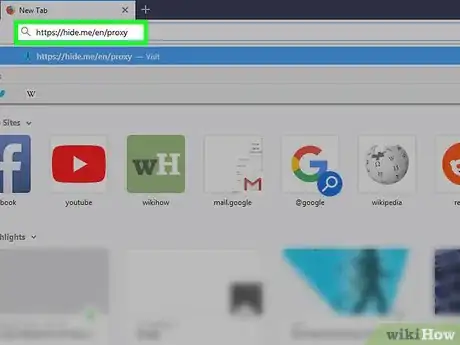
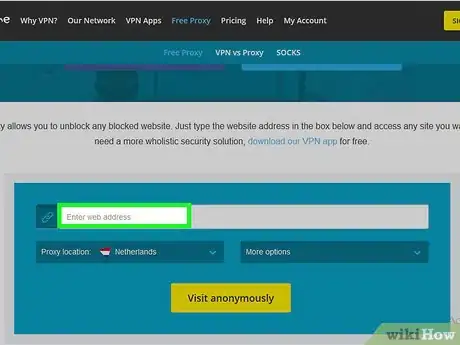



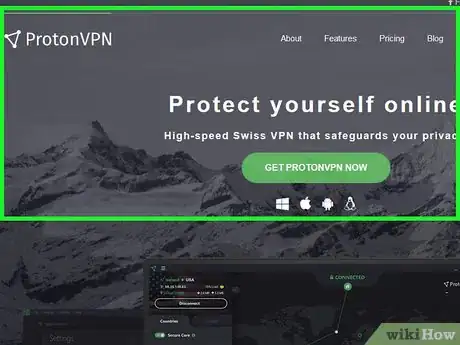
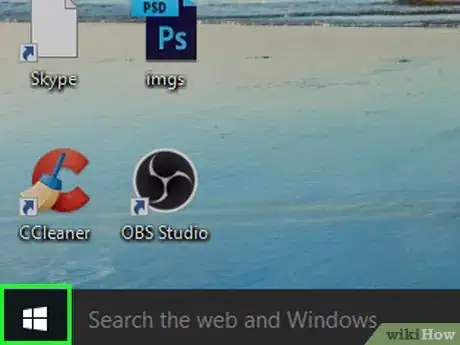

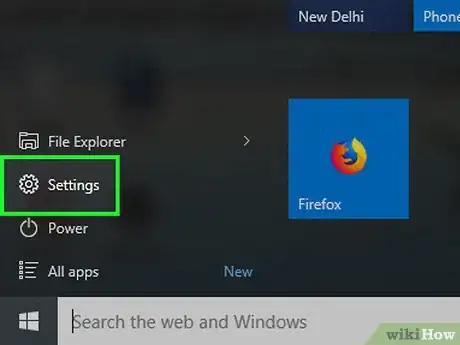

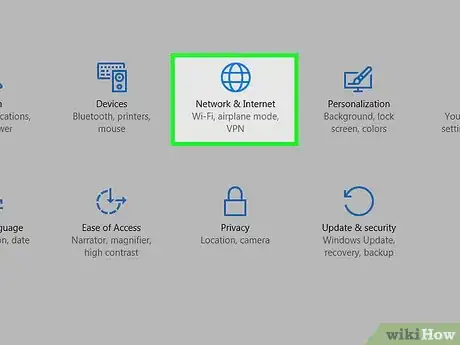

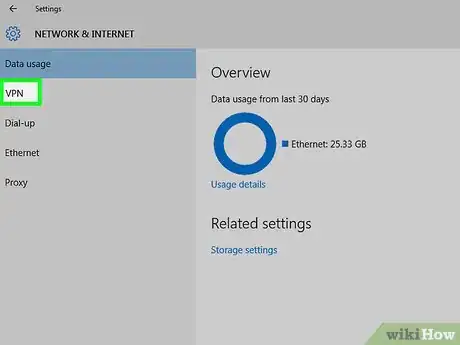

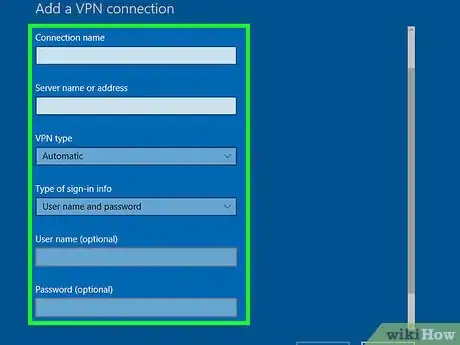
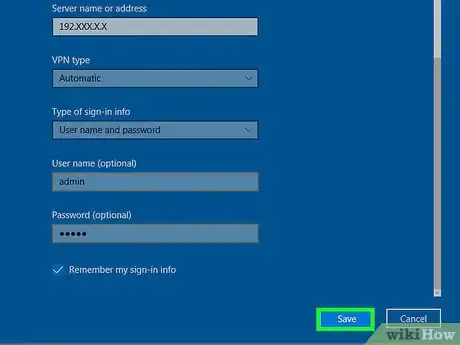
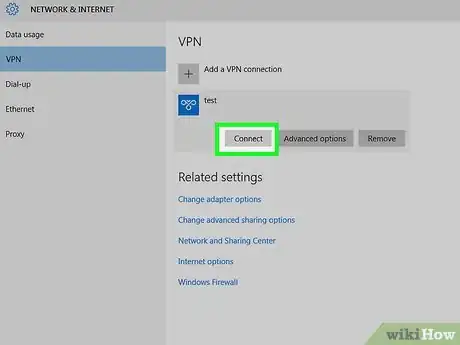



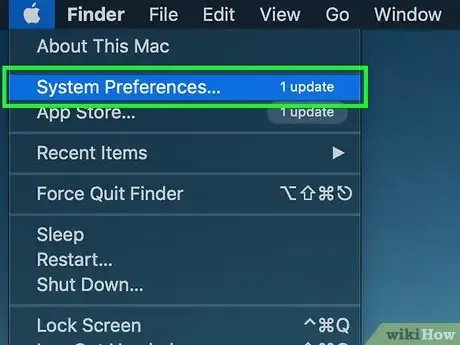
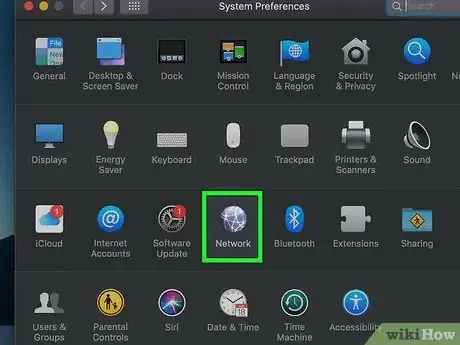
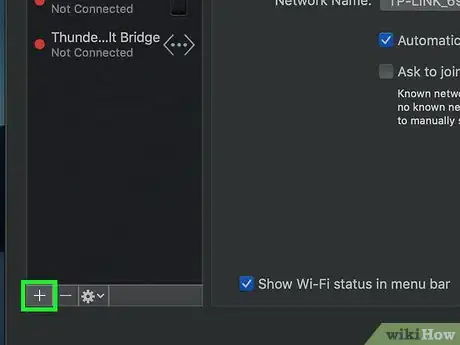
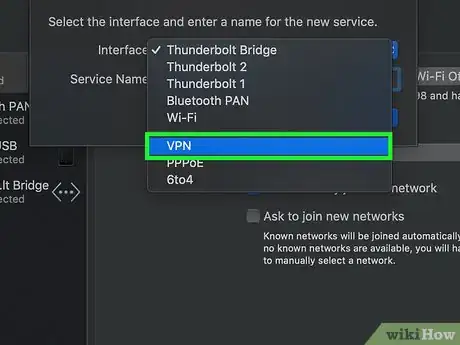

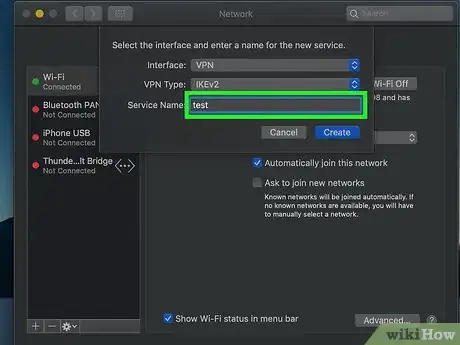

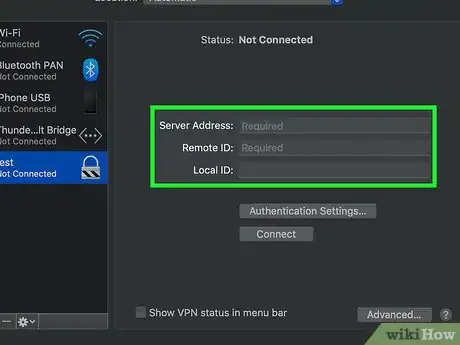

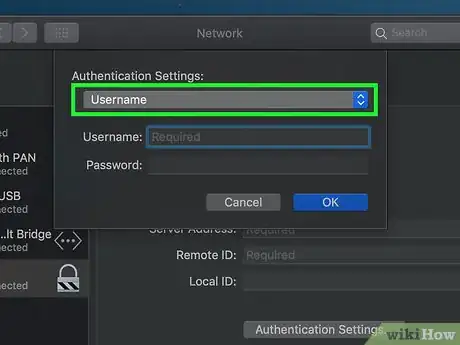


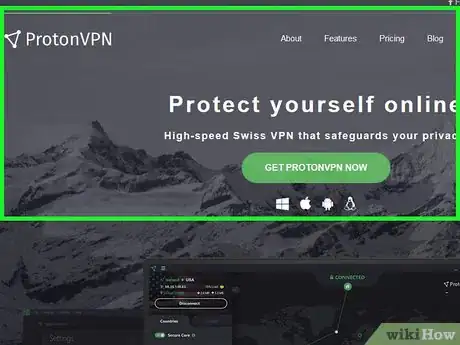
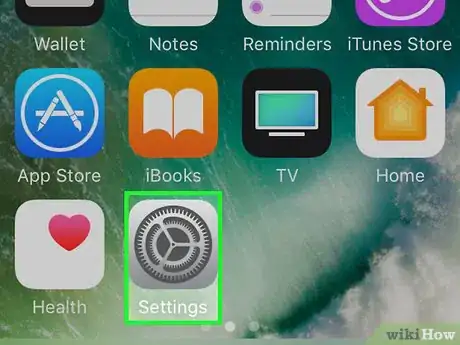

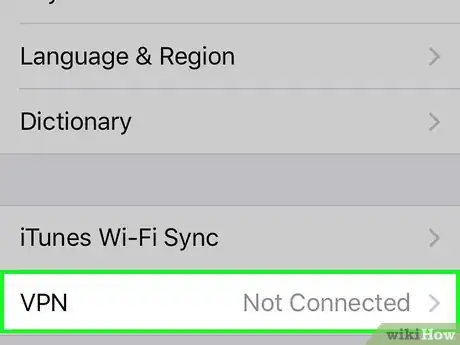
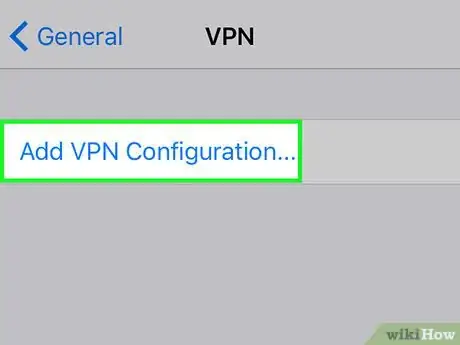
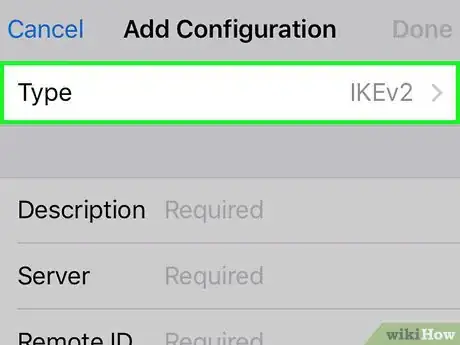
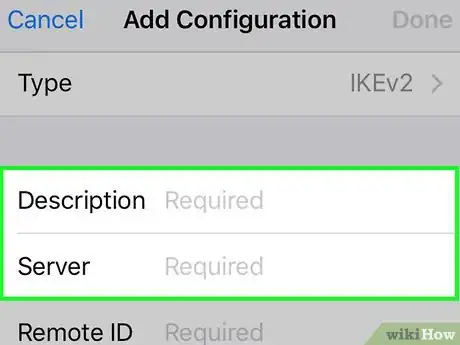
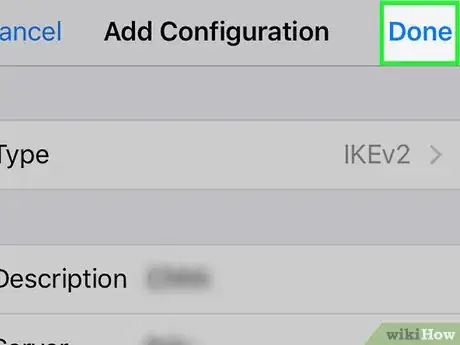

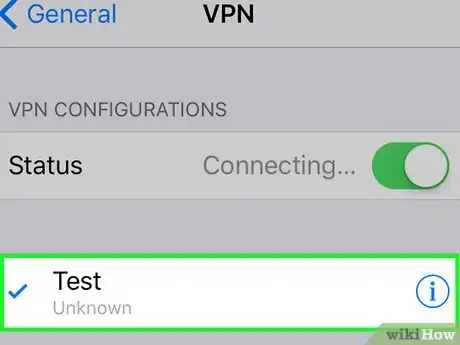




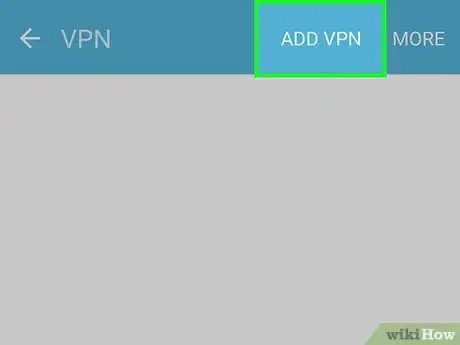

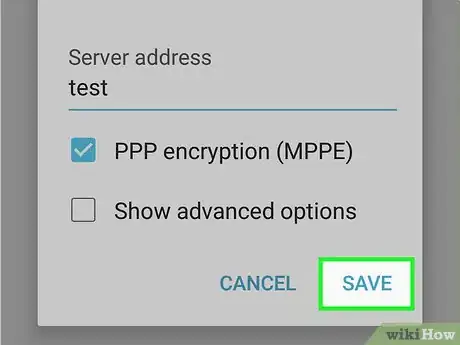





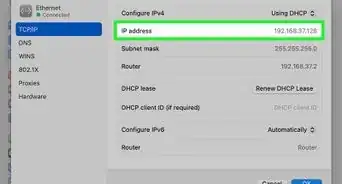
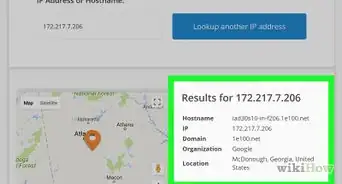
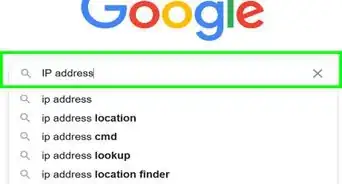
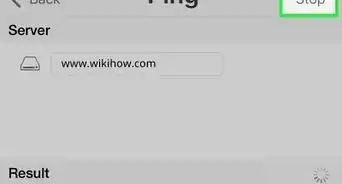
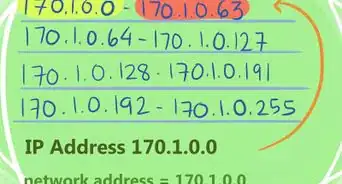
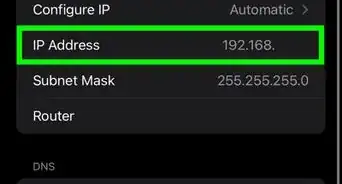
-Step-23-Version-2.webp)
